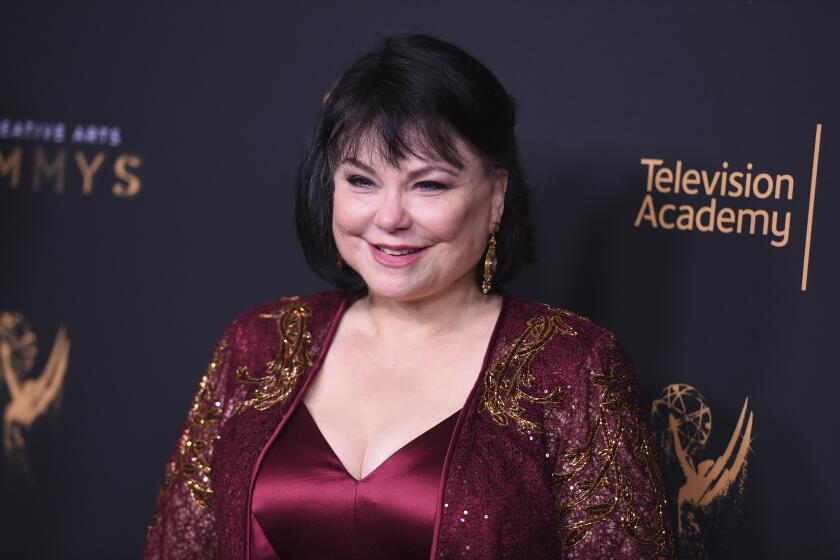‘Orange is the New Black’ casts new light on women’s prison
It was sometime around the 30-minute mark of episode 11 of the new Netflix original series “Orange is the New Black” that I suddenly felt that going to a women’s prison might not be so bad. Even life-affirming.
I was in the process of binge-watching the 13-episode show, which premiered Thursday on Netflix. On this particular day, I was sick, on the couch, and emotional.
Binge-watching is a weakness of mine. It’s total immersion therapy. I lose myself in the world of the show and a few days later — when I’ve come up for air — mourn the loss of it. I miss the characters, who now seem like familiar friends.
I was feeling really sentimental about a group of female inmates. My Russian sidekick, Red, who runs the prison kitchen; good old drug trafficking Alex (played by Laura Prepon), who I could always count on for a dry one-liner; insane but lovable “crazy eyes,” the misunderstood lesbian with a strong sense of herself and undying devotion to those she cares for (sure, she urinates on the floor when she’s mad, but that’s OK!); and Diya, the tender-hearted Latina with a thing for a kind prison guard.
We had some good times, ladies! Trying times, but good times. And I feel like if I were in there with you, we could really support each other. Playing Scrabble, helping each other avoid solitary confinement, bonding over our appeals process, and generally discovering what makes us human.
“Orange is the New Black,” is based on a true story and follows the life of Piper Chapman, a Smith grad who is indicted on drug charges and serves 15 months in a federal prison in New York.
PHOTOS: Hollywood Backlot moments
Of course, Chapman, who is played by Taylor Schilling, is terrified to go to prison. And things aren’t easy once she’s there: There are death threats, hard-core prison politics and prisoner-delivered justice, crazed lesbian stalkers and brutal prison guards.
But there is also a really strong sense of female camaraderie — of women taking care of each other in a landscape that most of us cannot possibly imagine. That’s not to say that the show presents prison in a cuddly way.
It’s too smart for that. And I’m too smart to suggest that anybody should really want to be in prison.
Only, in the world of good television, reality is often subverted in the best of ways to make us examine our lives — and those we might initially be fearful of — in an entirely new light.
ALSO:
Stephen Colbert comes down with royal baby fever
The family on “here Comes Honey Boo Boo” is the real deal
TV critic Mary McNamara and Times’ writer Glenn Whipp to discuss Emmy nominations
More to Read
The complete guide to home viewing
Get Screen Gab for everything about the TV shows and streaming movies everyone’s talking about.
You may occasionally receive promotional content from the Los Angeles Times.






